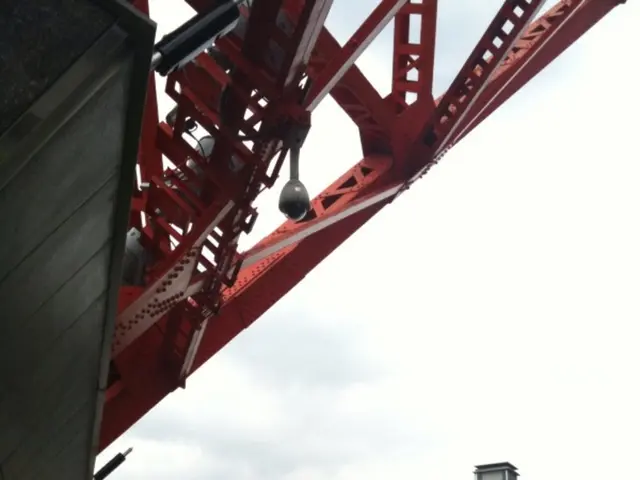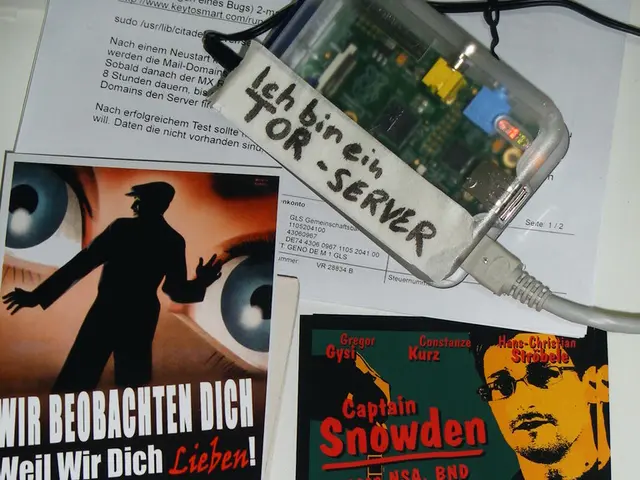AI Transforms Retail Experience: Intelligent Tech and Customized Shopping
In the ever-evolving landscape of retail, Artificial Intelligence (AI) is making a significant impact, reshaping the way businesses operate and customers shop. Here's a look at some of the ways AI is transforming the retail sector.
Streamlining Operations
Retail giants like Walmart are testing robots that scan shelves for restocking needs, price adjustments, and missing items, aiming to increase efficiency and reduce human error. Similarly, Zara is using robots to streamline order pickups, enhancing convenience for customers.
Embracing AI in Daily Operations
The retail industry is increasingly adopting AI technology. Nearly 50% of retail respondents actively employ AI in their daily operations, according to recent reports. This shift is driven by the combination of the Internet of Things (IoT) and AI, which enables retailers to analyze large amounts of data and make customer-focused decisions quickly.
Personalized Shopping Experiences
AI is also playing a crucial role in delivering personalized shopping experiences. West Elm's AI-powered Pinterest Style Finder scans customers' boards to recommend home décor and furniture items aligned with their preferences. Sephora's Color IQ scans faces to recommend personalized foundation and concealer shades.
Inventory Management
AI is extensively used in inventory management, utilizing complex algorithms and machine learning abilities to gather data from various sources. This helps retailers maintain optimal stock levels, reducing waste and improving customer satisfaction.
Supply Chain Optimization
AI is also improving supply chain optimization. Amazon Go stores use AI-powered sensors and cameras to facilitate cashier-free shopping, while Lowe's uses the LoweBot, a robot that assists customers in navigating its stores.
Predictive Systems
The retail sector has been undergoing a significant digital transformation over the past few years, driven by the integration of advanced data analytics and predictive systems. AI has taken a central role in this transformation, offering sophisticated data insights to optimize retail operations and uncover intelligent business prospects.
The Future of Retail AI
The global market size for artificial intelligence in the retail sector is expected to grow annually at an average rate of about 30% between 2023 and 2030. By 2030, the global AI market is projected to reach approximately $800 billion to $826.7 billion, including retail among other industries. The global AI in retail market is expected to reach $40.74 billion by 2030, witnessing a CAGR of 23.9% from 2022 to 2030.
AI-Driven Apps and Services
Many retailers are leveraging AI to enhance their services. Starbucks' My Starbucks Barista app enables voice and text-based orders, allowing customers to skip lines and find their orders ready upon arrival. Neiman Marcus employs AI in its Snap-Find-Shop app, allowing users to find similar items in its inventory by taking pictures. Macy's On Call app guides customers within stores, offers directions, checks stock availability, and alerts human employees when customers need assistance.
Health Monitoring
AI is even being used for health monitoring in retail. Walgreens tracks flu spread using AI by analyzing antiviral prescriptions filled at its locations.
Embracing the Future
Generative AI, such as OpenAI's ChatGPT, has piqued the interest of the retail industry. Retailers are now faced with a decision to embrace its potential, as AI continues to revolutionize the shopping experience and shape the industry's future.
In conclusion, AI is becoming an integral part of the retail sector, offering numerous benefits from streamlined operations to personalized shopping experiences. As the technology continues to evolve, we can expect to see even more innovative applications of AI in retail.
Read also:
- Elon Musk Acquires 26,400 Megawatt Gas Turbines for Powering His AI Project, Overlooks Necessary Permits for Operation!
- U Power's strategic collaborator UNEX EV has inked a Letter of Intent with Didi Mobility to deploy UOTTA(TM) battery-swapping electric vehicles in Mexico.
- Commercial-grade hydrogen enhancement systems manufacturing initiated by H2i Technology
- Toyota strikes a deal in Shanghai for a solely owned Lexus electric vehicle production plant.







